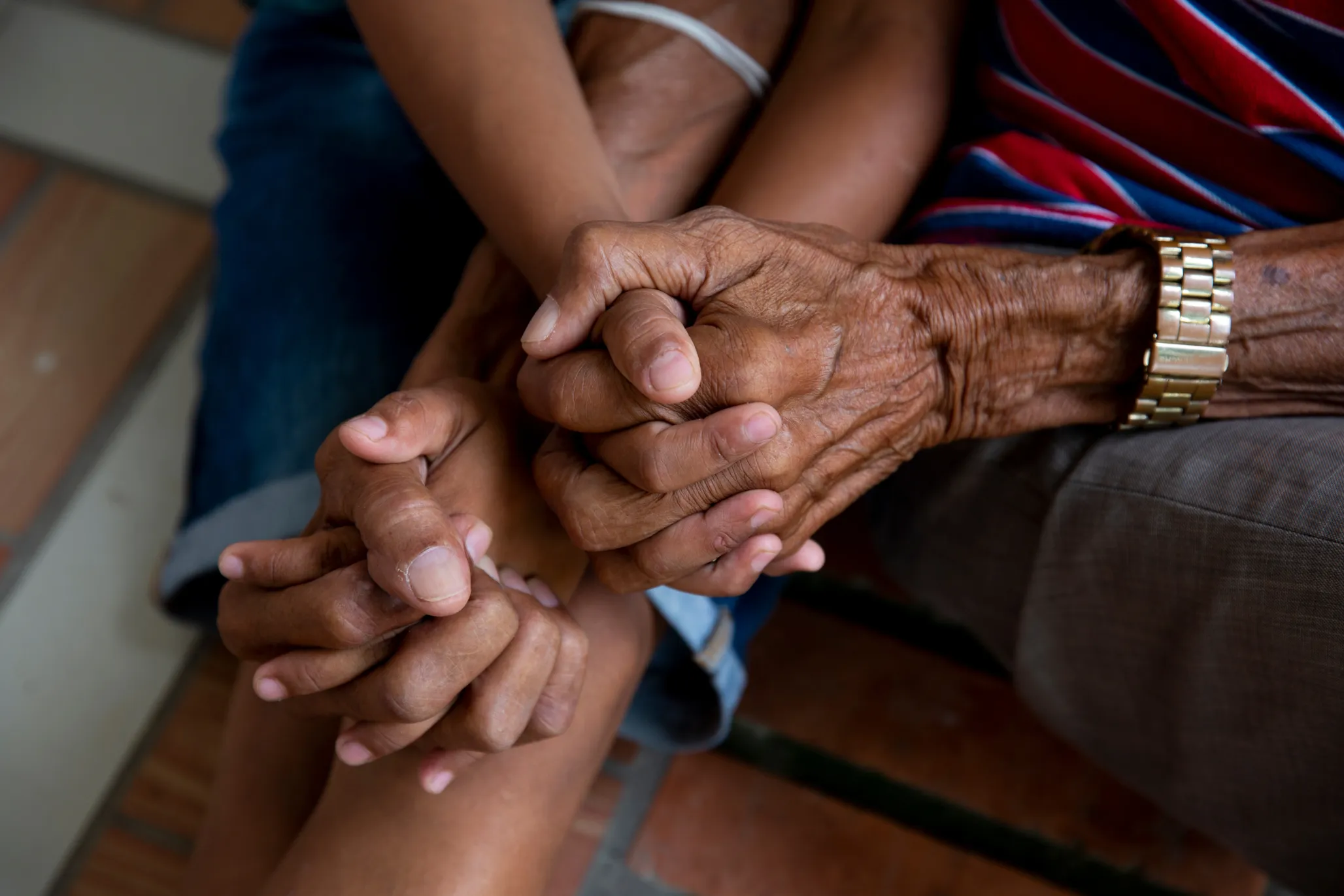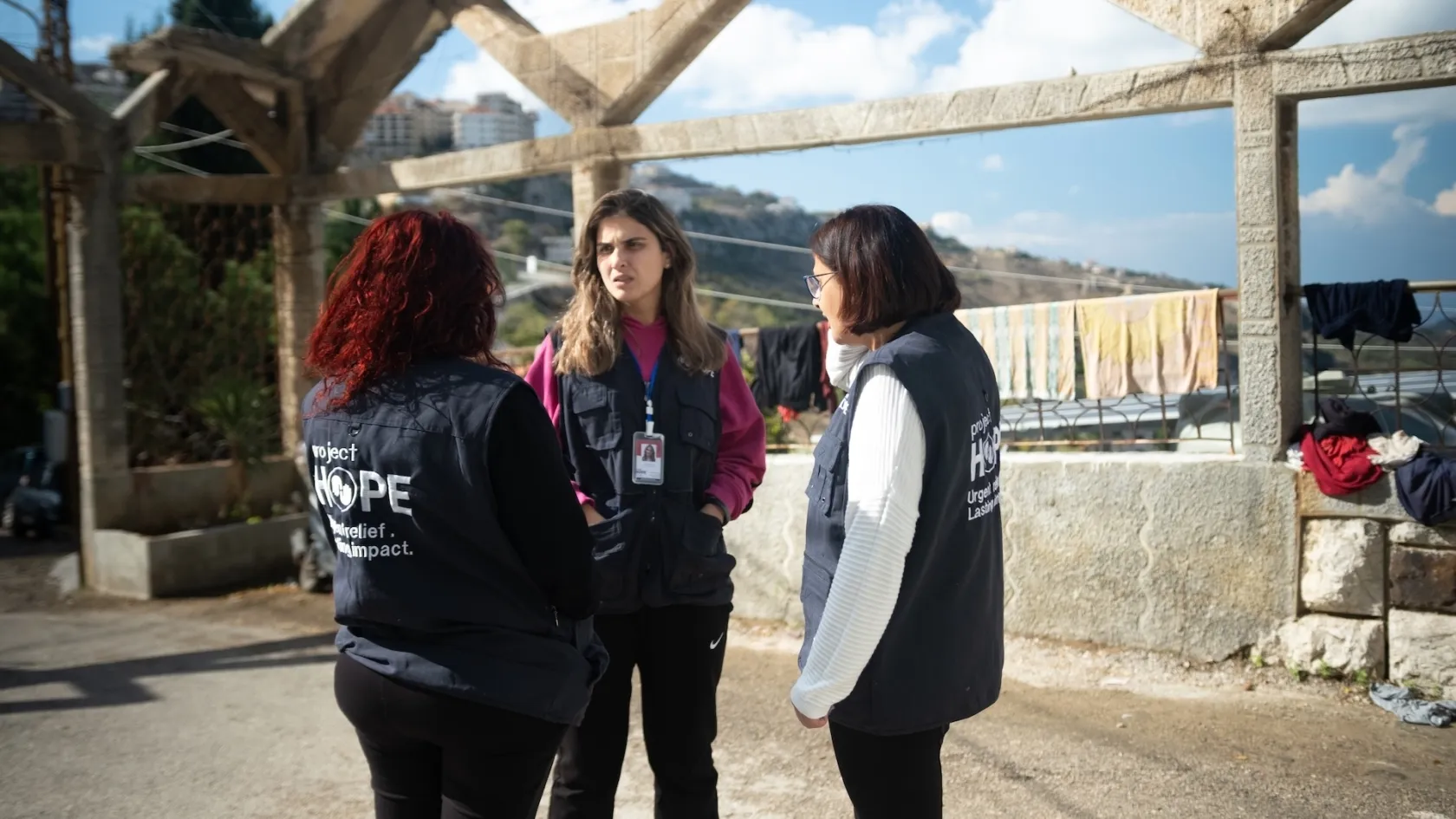5 Steps to Help Someone in Distress

It was a hot afternoon in June 2019, when I got a call from my best friend. I was working in Chad at the time, and it was 8 a.m. in the Americas, where she was calling from.
A few minutes before that call, she texted me, “Can I call you?” To this today, five years later, I still thank God I wasn’t in the middle of a meeting and could answer yes.
I picked up the phone and immediately heard her shaky, tear-filled voice. “I’m thinking about ending my life,” she said on the other end of the line. In that instant, it felt like my blood pressure dropped and my heart started beating harder and louder in my chest.
As a clinical psychologist, I had worked with suicidal patients in the mental health unit of one of the largest hospitals in my hometown. But this was different. I had never been in a position where one of my loved ones was in such a situation. I couldn’t even imagine that someone so close to me might be facing the same challenges as my patients. Clinical psychologists don’t provide professional support to friends or family.
Luckily, at that moment on the phone, I wasn’t the psychologist someone calls for an appointment; I was simply a young woman trying to support her best friend across the world, just like anyone might have to do.
I’m so relieved that wasn’t the last time I spoke to her. It very well could have been if I hadn’t used the right words at the time she needed them most. Fortunately, I had a set of skills that I had learned and practiced over the years—skills that can save lives and can be used by anyone who is willing to support their loved ones, no matter their profession or expertise in mental health.
Here they are: five steps you can take to support someone in emotional distress.
1. Listen.
Listen closely and actively, not just with your ears but with your whole body. Pay attention to what the person is saying, but also to their gestures, eyes, and body language. Be fully present, listening without interruptions or judgments. Let their words flow into your ears and process everything, paying attention to words they repeat.
Listening might seem easy, but truly listening is a skill. Often, when we talk to people, they are just waiting for the slightest breath to jump in with their own story. They were thinking about what they wanted to say rather than focusing on what you wanted to communicate. Don’t be that person when a friend comes to you for support.
Listen fully and do your best to stay silent. It’s difficult, I know. Instead, use interjections or brief words of affirmation to show you’re engaged. Give the person the space to vent and release the emotions they’ve been bottling up.
2. Validate their emotions.
Now is the time to speak. When you feel your friend has said everything they need to, go back to the words and emotions you noted in your memory while listening. Acknowledge their feelings and emotions, using their own words if possible, to show you have really heard and understood how they are feeling by saying something like: “I hear that you’re feeling desperate and hopeless, that sounds really hard” or “I can see you’re feeling deeply sad and alone; I’m here for you.” Validate your friend’s emotions, without any negative judgment.
Ask follow-up questions if you need. This shows you are genuinely trying to understand the situation. Avoid cliché phrases and invalidating comments like: “You are too sensitive,” “You shouldn’t be feeling that way; you are lucky,” or “Don’t worry, you will feel better.”
If your friend is struggling like mine was, don’t hesitate to ask if they have a plan or the means to end their life. It’s a difficult question, but it’s crucial to understand the urgency of the situation and get additional help immediately.

3. Offer your support.
Let your friend know you are there for them in any way they need. Ask how they think you could help. If they are too overwhelmed to answer and have no idea, then is time to roll out a list of possibilities for how you think you could support them. Sometimes, just being there and listening is all the support they need. Sometimes people just need to be heard and understood without expecting any advice in exchange.
Your list of supportive options could also look like this: “I can listen to you, I can hug you, I can give you advice, or all three. You let me know what you need.” Offering concrete options, like spending time together or helping with a task, can also help them feel better.
4. Invite them to action.
Encourage them to engage in something that might help relieve their emotional distress. If possible, do it together. Another action could be to practice an emotional regulation technique that you could find in our Mental Health Resource Center. It could be a culturally appropriate practice like prayer, singing, or dancing. Support them through that difficult moment by helping them find positive coping mechanisms and avoiding harmful ones like drinking alcohol, which may offer temporary relief but can be harmful for the physical and psychological well-being in the long-term.
5. Seek professional support.
While you can offer valuable support to your friends and relatives, it is important to remember that it doesn’t replace professional mental health care. Emotional distress and mental health conditions can be overwhelming and require professional follow up, especially if this is impairing the normal functioning or causing important emotional suffering. Sharing resources and contacts of mental health professionals could be a valuable to help others. If someone’s life is at risk, get professional support right away, and first and foremost, never leave them alone.
I hope these five steps offer you some strategies to better support others in need. We can all contribute to each other’s well-being. Using the right words and skills can be a game-changer and a life-saver.
Pamela Londoño Salazar is a mental health advisor at Project HOPE.
If you or someone you know needs help, don’t wait. Reach out to 988 and support is always there.
The information and materials provided on this website are intended solely for individuals seeking general information about mental health and are not intended for individuals or patients seeking professional or medical advice, diagnosis, or treatment. The content has been made available for informational and educational purposes only. Nothing contained in this website is intended to be a substitute for professional medical diagnosis or treatment. By providing this information or content in this website, Project HOPE are not engaged in the practice of medicine, nursing, or the provision of any health care service, and will not exercise any control or influence over the medical judgment or decision making of any user in providing health care services to his or her patients.
Each medical professional user shall be solely responsible for all medical judgment and decision making with respect to the provision of health care services to his or her patients.
Project HOPE hereby disclaims any and all liability to any party for any direct, indirect, implied, punitive, special, incidental or other consequential damages arising directly or indirectly from any use of the material in this Fact Sheet, which is provided as is, and without warranties. You assume full responsibility for using the information in this website.



